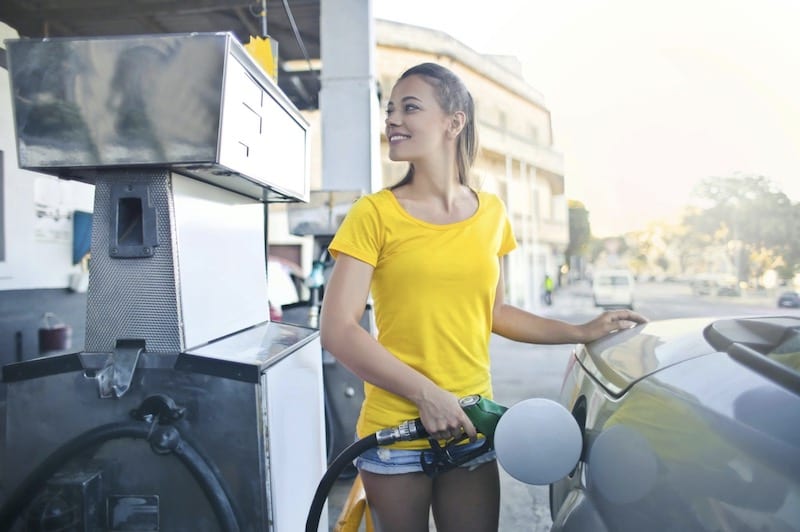With petrol prices fluctuating and concerns about environmental impact increasing, maximising fuel efficiency has become an important factor for many individuals. Whether you're driving for work, leisure, or daily errands, saving money at the pump is a goal all drivers share.
Fortunately, there are several simple strategies you can employ to save some coin at the petrol station. Here are ten tips to help you get the most out of every litre of petrol.
Maintain your vehicle
A big part of fuel efficiency is ensuring your vehicle is well-maintained. Follow the manufacturer's recommended service schedule to keep your car running smoothly. On top of this, be sure to regularly check your tyres to ensure they are properly inflated and aligned, as under-inflated tyres increase rolling resistance, making your engine work harder and consuming more fuel. Your vehicle's manual will specify the recommended tyre inflation level. Properly inflated tyres not only save fuel but also improve safety and prolong tyre life.
Drive smoothly
Aggressive driving habits such as rapid acceleration, hard braking, and excessive speeding can significantly decrease fuel efficiency. By adopting a smooth driving style, you'll likely reduce your car's petrol consumption. To do this, practise smooth acceleration and braking, maintain a steady speed, and anticipate traffic flow to avoid unnecessary stops and starts. Driving calmly and steadily conserves fuel, while also reducing wear and tear on your vehicle.
Lighten the load
Carrying excess weight in your vehicle can increase fuel consumption. In fact, according to the US Department of Energy, having an extra 100 pounds in your car could reduce your miles per gallon by as much as 2 percent. Clean out any unnecessary items from your car and only carry what you need for your trip. This could include emptying your trunk and removing items from the roof rack if not in use. Every little bit of weight reduction can help improve your car's fuel efficiency.
Utilise cruise control
On long highway journeys, cruise control can help maintain a consistent speed, reducing fuel consumption by optimising engine efficiency. It also helps prevent unnecessary speed fluctuations, which can use up more petrol. However, use cruise control wisely. It's best to avoid using it on hilly terrain or in heavy traffic where constant speed changes are necessary.
Plan your trips
Another good way to save money on petrol is to plan your trips before you leave the house. Combining multiple errands into one trip can reduce the overall distance travelled. Plan your routes efficiently to minimise backtracking and unnecessary driving. Where possible, try to avoid rush hours or peak traffic times when planning your routes to prevent sitting in traffic jams, wasting both petrol and time.
Do your research
You can often save money on petrol by simply knowing where to fill up. According to Chris Ford from Compare the Market, people choosing the right petrol station can make all the difference. "We know that there’s currently a 53-cent difference between the cheapest location in Brisbane and the most expensive, which is a whopping $26.50 if filling up a 50-litre tank," he says. That's a significant amount to save just by filling up at the right place. Check online for petrol price comparison sites or apps that can help you find the cheapest options in your area.
Avoid excessive idling
Idling consumes fuel without moving your vehicle, resulting in less litres per kilometre. Turn off your engine if you anticipate being stationary for more than a minute, such as at railway crossings, drive-thru windows, or during extended waits. Restarting your engine typically uses less fuel than idling for prolonged periods, however, do some research on the idling time required for your specific vehicle before shutting it off.
Use your air conditioning wisely
Air conditioning can increase fuel consumption, especially in hot weather. Use your AC conservatively, and consider opening windows or using the vehicle's ventilation system when driving in moderate temperatures to reduce the load on your engine. Additionally, park in the shade when possible to prevent your vehicle from becoming too hot and needing more cooling when you hop back in it.
Choose the right fuel
Consult your vehicle's manual to determine the recommended fuel type and octane rating for your car. Using higher-octane fuel than necessary offers no benefits and wastes money. Conversely, using lower-octane fuel than recommended can potentially harm your engine and reduce fuel efficiency. You should also ensure that the fuel you purchase is from a reputable and reliable source to avoid any contamination issues.
Monitor fuel economy
Stay informed about your vehicle's fuel consumption by tracking kilometres and fuel usage. Many modern vehicles come equipped with onboard fuel economy displays, while smartphone apps such as Fuelio, and dedicated devices can also provide real-time feedback. Monitoring your fuel economy helps identify changes in efficiency and enables you to adjust your driving habits accordingly.
Maximising your fuel efficiency isn't just about saving money at the petrol station; it's also a responsible choice for the environment. By implementing these ten tips, you can reduce your fuel consumption, lower your carbon footprint, and enjoy significant savings over time. Remember, small changes in driving behaviour and vehicle maintenance can add up to substantial fuel savings, benefiting both your wallet and the planet.





